|
|
|
Program > Keynotes and Lectures
Keynotes
The Spirits of Web of Things Past, Present, and Yet to Come (slides)
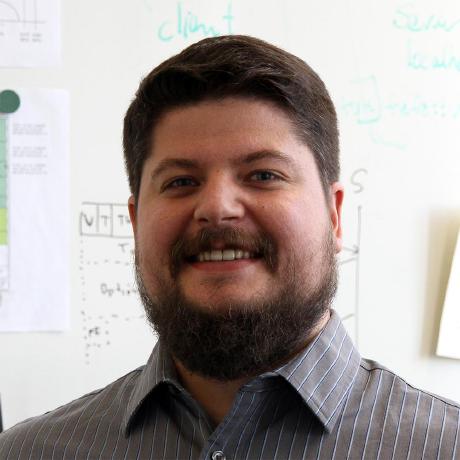
- Speaker:
- Matthias Kovatsch
- Bio:
- Matthias is a Principal Researcher at Huawei's German Research Center in Munich. With experiences at Samsung and Siemens, he digitalizes industry by applying Internet and Web technology, and shapes the Internet of Things through standardization. He has a doctorate from ETH Zurich, Switzerland, where he found his passion for open source software and open standards. Since then, he has been active in the Eclipse Foundation, Internet Engineering Task Force (IETF), the World Wide Web Consortium (W3C), and the OPC Foundation.
- Abstract of the keynote:
- The Web of Things (WoT) started out as an initiative to ease IoT development and improve interoperability. The recent standardization within the W3C combined the strengths of hypermedia-driven interaction with the reasoning capabilities of Semantic Web technology. W3C WoT overlaps with the Knowledge Graph branch of artificial intelligence and aims at many application domains including industry. This keynote gives an overview over the past, present, and future of the Web of Things with a focus on the ideas behind the recently published W3C standards.
Machine Learning with Knowledge Graphs (video)
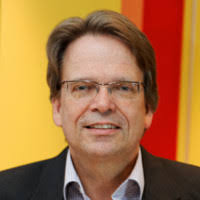
- Speaker:
- Volker Tresp
- Bio:
- Volker Tresp is a Distinguished Research Scientist at Siemens and a Professor for Machine Learning at the Ludwig Maximilian University of Munich (LMU). He received a Diploma degree from the University of Goettingen, Germany, in 1984 and the M.Sc. and Ph.D. degrees from Yale University, New Haven, CT, in 1986 and 1989 respectively. Since 1989 he has been the head of various research teams in machine learning at Siemens, Research and Technology. He filed more than 100 patent applications and was inventor of the year of Siemens in 1996. He has published more than 150 scientific articles and administered over 25 Ph.D. theses. The company Panoratio is a spin-off out of his team. His research focus in recent years has been “Machine Learning in Information Networks” for modelling Knowledge Graphs, medical decision processes, perception, and cognitive memory functions. He has been the consortium lead of a number of publicly funded projects. Since 2011 he is also a Professor at the Ludwig Maximilian University of Munich where he teaches an annual course on Machine Learning.
- Abstract of the keynote:
- Over the past years, there has been a rapid growth in research on Machine Learning with Knowledge Graphs (KGs). KGs are large networks of real-world entities, which are described in terms of their semantic types and their relationships to each other. KGs can be represented as adjacency tensors from which tensor models can be derived to generalize to unseen facts and to derive entity embeddings. We show how Machine Learning with Knowledge Graphs can be used in industrial applications and for clinical decision support. Important issues we are addressing in the clinical setting are missing data, explainability and policy evaluation. I will discuss Machine Learning with Knowledge Graphs for rich scene graph descriptions and debate potential links to the memory and perceptual systems of the human brain.
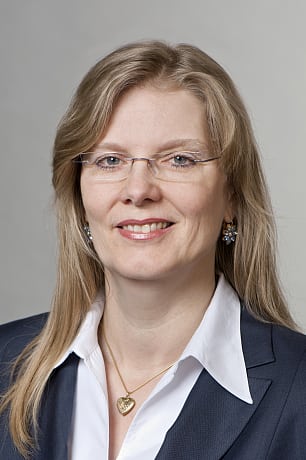 Multi Agent Systems in the context of industry 4.0- challenges and reusable pattern
Multi Agent Systems in the context of industry 4.0- challenges and reusable pattern
- Speaker:
- Birgit Vogel-Heuser
- Bio:
- Professor Dr-Ing. at Technische Universität München
- Abstract of the keynote:
- Multi Agent Systems enable adaptivity and flexibility of automated Production Systems. A pattern based approach for field level MAS will be introduced adressing model based, purely learning and hybrid approaches. Using a status report on agents in Industry 4.0 and guidelines from VDI/VDE different use cases are introduced to highlight the basic paradigm and successful implementations.
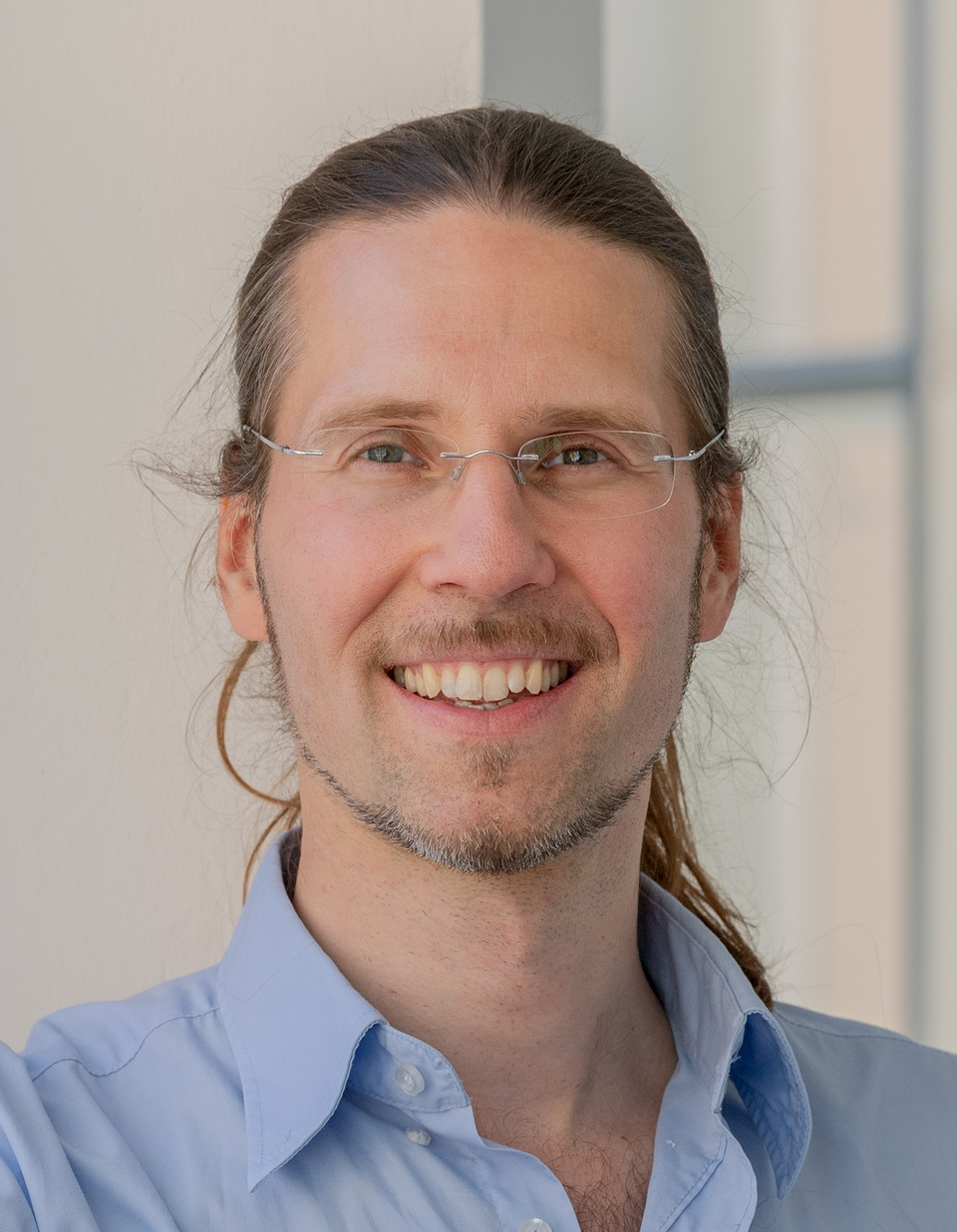 When data is the new oil, it is our role to prevent the blowout! (slides)
When data is the new oil, it is our role to prevent the blowout! (slides)
- Speaker:
- Marc-Oliver Pahl
- Bio:
- Marc-Oliver Pahl - research director at the Institute Mines Télécom (IMT) Atlantique, Rennes, France. He is the chair holder of the industrial chair “Cyber CNI” that focuses on Cybersecurity for critical infrastructures with currently 12 PhD students and PostDocs. He is the co-director of the UMR LAB-STICC/IRIS (14 professor positions; 1 research position; 1 technician; 11 post-docs; 22 PhDs; 3 external associated researchers). Marc-Oliver also heads the IoT smart space team at Technical University of Munich (TUM), Germany, with currently 4 PhD students and more than 150 Master and Bachelor students in the past 11 years. He is digital teaching director of the German-French Academy for the industry of the future (GFA). Marc-Oliver is the scientific vice president of the German chapter of the Association for Computing Machinery (ACM). He is also the faculty sponsor of the ACM student chapter Munich. He continuously co-chairs major conferences especially in the network management domain. He is the co-director of the annual Future-IoT summer school series.
- Abstract of the keynote:
- A central element of Industry 4.0 is the sharing of data on all levels, from local to the cloud. This sharing brings many opportunities. But it brings also risks regarding data security. The talk presents at guiding examples, what typical security risks are that can especially affect privacy and safety. Based on the examples, the talk shows protection mechanisms, including machine-learning-based ones, and research directions towards a secure, transparent data sharing for the Industry 4.0.
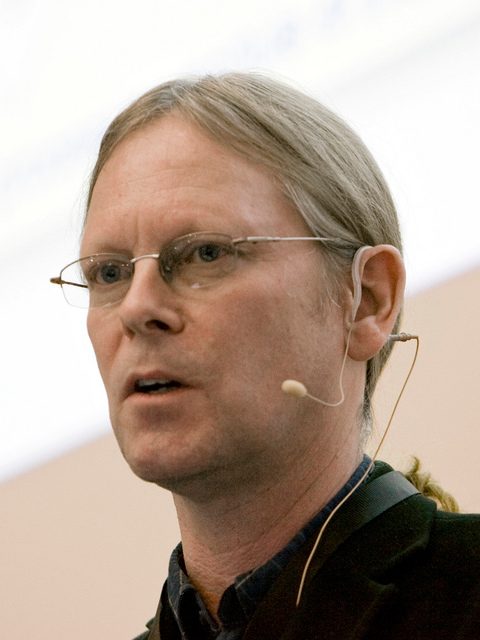 Emergence of the Sentient Web and the revolutionary impact of Cognitive AI (slides)
Emergence of the Sentient Web and the revolutionary impact of Cognitive AI (slides)
- Speaker:
- Dave Raggett
- Bio:
- Dr. Dave Raggett is a member of the W3C’s European staff and a visiting professor at the University of the West of England. He was closely involved with early work on web standards especially HTML and HTTP. He has been involved in many European projects, and currently focuses on the Web of Things and Cognitive AI. He was educated at the University of Oxford, followed by assignments at the University of Edinburgh, Imperial College and MIT, along with industry experience at HP, Canon, Openwave, Volantis and JustSystems.
- Abstract of the keynote:
- This talk will introduce the Sentient Web and Cognitive AI in the context of Industry 4.0. This draws upon advances in the cognitive sciences to mimic what we've learned about the brain in terms of perception, cognition and action, and its mapping to Web architecture using a combination of REST APIs, graph databases, statistics, rules and graph algorithms, together with the Web of Things.
Lectures
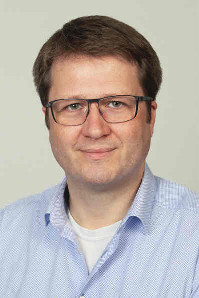 From Internet of Things Platforms to Web of Things User Agents (slides)
From Internet of Things Platforms to Web of Things User Agents (slides)
- Speaker:
- Andreas Harth
- Bio:
- Andreas Harth is professor of technical information systems at the University of Erlangen-Nuremberg in Germany. He worked as a post-doctoral researcher at Institute AIFB at the Karlsruhe Institute of Technology (KIT) in Germany after pursuing a Ph.D. at the Digital Enterprise Research Institute (DERI) at the National University of Ireland, Galway. His research interests are large-scale data interoperation on the Semantic Web, Linked Data, knowledge representation, computational logic and user interaction on web data. Andreas has published several dozen papers in these areas, and is author of a number of open source software systems. Recently, he has become interested in (RESTful) architectures for cyber-physical systems (e.g., smart energy grids, surgery systems, mixed-reality systems). Andreas has successfully carried out numerous European and national projects and participated in the W3C Semantic Web Best Practices and Deployment, Rules Interchange Format and Spatial Data on the Web working groups. In addition, he served as program committee member of numerous conferences and was one of the co-organisers of the Consuming Linked Data (COLD) workshop series and of the Semantic Web Challenge. He served as general chair of ESWC 2020, a major venue for discussing the latest scientific results and technology innovations around semantic technologies.
- Abstract of the lecture:
- Many current enterprise IoT projects are implemented with IoT platforms, which follow a centralised architecture. Sensor readings are transmitted to a cloud, where the data is processed and aggregated. The cloud is also responsible for controlling actuators. Such a setting works for systems that are managed by a single organisation. But future IoT systems involve devices and data from multiple organisations, which makes a centralised architecture difficult to implement, both from a technical perspective and from an organisational perspective. The talk starts with an overview of centralised Internet of Things platforms and outlines their shortcomings. The talk then introduces hyperlinks as a means for decentralised linking and discovery on the web, and sketches systems that sense and actuate within an agent architecture in a decentralised setting.
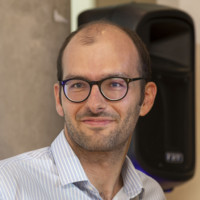 The Web of Things and Hypermedia for Smart Devices
The Web of Things and Hypermedia for Smart Devices
- Speaker:
- Simon Mayer
- Bio:
- Simon is a full professor and director of the Institute of Computer Science at the University of St.Gallen, where he leads the Chair of Interaction- and Communication-based Systems. After obtaining his doctorate from ETH Zurich, he worked at Siemens Corporate Technology in Berkeley, USA, from 2014 until 2017, most recently as Senior Key Expert for Smart and Interacting Systems. Simon’s main research topics are integration of smart things into the Web, their semantic description, and infrastructures that support human users in finding and interacting with information and services on the Web.
- Abstract of the lecture:
- The talk provides an overview of foundational principles of the Web of Things, with a focus on the design of Web APIs for smart devices and on hypermedia as the engine of application state.
 Distributed Knowledge Graphs (slides part 1, part 2, part 3, part 4)
Distributed Knowledge Graphs (slides part 1, part 2, part 3, part 4)
- Speaker:
- Tobias Käfer
- Bio:
- Post doctoral researcher at Karlsruhe Institute of Technology
- Abstract of the lecture:
- The talk provides an overview on the technologies from the Semantic Web stack to build Distributed Knowledge Graph systems. Specifically, the talk covers URI, HTTP, RDF, SPARQL, RDFS, and rules for reasoning, link following, and programming user agents.
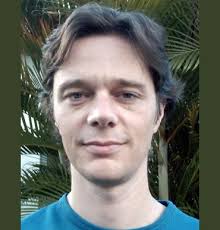 Multi-Agent Oriented Programming -- Programming Multi-Agent Systems Using JaCaMo (slides)
Multi-Agent Oriented Programming -- Programming Multi-Agent Systems Using JaCaMo (slides)
- Speaker:
- Jomi Fred Hübner
- Bio:
- Jomi F. Hübner is an Associate Professor at University of Santa Catarina (Brazil). His main research interests are multi-agent programming and tools to develop such systems. The main projects he is co-developing are JaCaMo (a multidimensional programming platform for multiagent systems), Jason (an interpreter of a language for belief-desire-intention agents), and Moise (an organisational model and infrastructure). He co-organised the Iberagents@IBERAMIA 2006, COIN 2008@AAMAS 08, LADS 2010@MALLOW 2010, ProMAS@AAMAS 2012, EMAS@AAMAS 2020), was the Workshops co-chair at IEEE/WIC/ACM International Joint Conference on Web Intelligence and Intelligent Agent Technology (WI-IAT'11); and AAMAS Demos 2020. He has served in the programme committees of major conferences and workshops in multi-agent systems and more generally in artificial intelligence: AAMAS, EUMAS, ProMAS, COIN, AT2AI, LADS, SBIA, RFIA, APLSA, SEAS.
- Abstract of the lecture:
- The aim of this course is to teach the fundamental aspects of Multi-Agent Oriented Programming (MAOP). This programming approach is particularly suitable for Cyber-Physical Systems and applications that have to tackle with large and open systems of interacting autonomous entities. In such a context, coordination is a challenge and MAOP a useful tool. MAOP offers both conceptual tools to model the problem and programming languages to implement the solution. Using different coordination problems, the course discusses and demonstrates how to practically develop more flexible and reusable solutions.
| Online user: 22 | Privacy |

|

